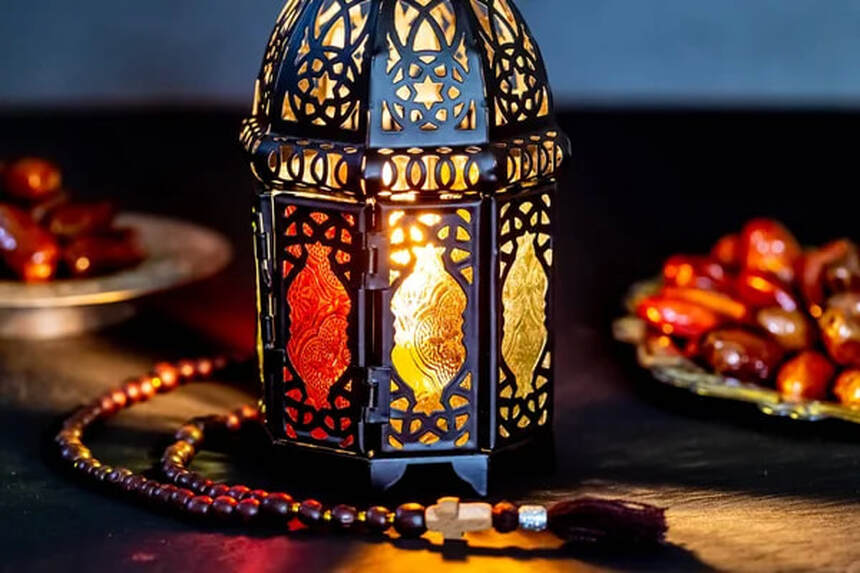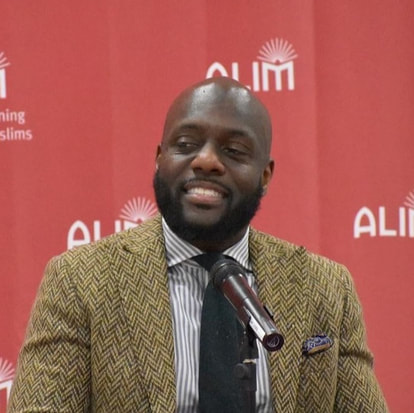By: Ustadh Ubaydullah EvansALIM Scholar-in-Residence  Dr. Sherman Jackson is very eloquent, mashallah. In fact, so appreciated is his ability to “turn a phrase” that we jokingly use the term “Jacksonian” to describe the rhetorical flourishes for which he’s known. However, the most eloquent I’ve ever heard him is in response to a question about the “essence of Ramadan.” For Dr. Jackson, such a broad, open-ended question was like a pitch right down the middle of the plate. So in his simple response, “Ramadan is about being hungry” he appeared to bunt. A slight chuckle could be heard among the audience. For many, he had either ironically or jokingly stated the obvious. Hunger is undoubtedly our most primal urge. It is at once the greatest unifying factor within our humanity and the source of our greatest disparity. And for all that could be correctly said concerning our advocacy around hunger: the obligation to fight it, to repudiate the greed that subjects so many of our fellow men and women to it involuntarily, the unacceptable callousness with which we turn a blind eye to those afflicted by hunger, it remains a perennial human universal. In the Qur’an, God says, “Be sure We will test you with something of fear and hunger, some loss in goods or lives or the fruits (of your toil), but give glad tidings to those who patiently persevere.” [2:155]. Stated differently, we might say that hunger always contains lessons; whether those are about insensitivity, greed and callousness or restraint, patience and perseverance. Dr. Jackson’s statement prompted me to think about hunger more broadly and why it figures so prominently into our worship during the month of Ramadan. In this regard, it might be helpful to think about hunger as a visceral expression of the word “No.” For the over-indulged, “no” is something we almost never hear and have been conditioned to regard with a mixture of incredulity and contempt. Plied with biographical fragments of historical personages who “refused to take no for an answer,” in our regard, “no” is a mere hurdle upon the path to self-realization. To be sure, when applied to pertinacity this ethic can produce great inspiration. However, applying the same attitude to consumption has resulted in a rapacious, consumerist ethic that has led the world to the brink of ecological catastrophe and our souls to a hollow decadence. One wonders, what can become of a people for whom degeneracy and freedom have become indistinguishable from each other? It would be disingenuous of me to subject readers to an environmentalist tongue-lashing. I enjoy eating meat on occasion (even though bovine flatulence is responsible for a sizable contribution to our greenhouse gas emissions) and a long leisurely drive down a windy road has always been a favorite pastime. However, the fact that we’re living in an epoch that some geologists term the “anthropocene” (to mark the disproportionate impact of humans on the planet) is haunting. And to think, this is mostly due to our inability to accept that sustainability might dictate some self-restraint. May God help us. And first and foremost, may He help me. How timely of a reminder is the month of Ramadan? In Ramadan, we voluntarily accept “no.” We subject our bodies to intentional privation in order that our souls might feast. As a result, we usually increase our sensitivity to the plight of others and generosity. The weight that we shed in Ramadan is transferred to the mizān (the scale upon which our deeds will be weighed on the Day of Judgment) in the form of our charitable giving. Of course, this is provided we don’t transform the month of ṣiyām (fasting) into the month of ṭa’ām (food!). In Bidāyat al-Hidāyah (An Introduction to a Life of Devotion)—which is quietly becoming an American touchstone—the famed jurist and spiritual aspirant, Abū Hāmid al-Ghazālī reminds us: “The underlying purpose of Ramadan is to reduce our consumption so don’t be like the one who overeats at the time of ifṭār! He engorges as if to make up for all of the food he’s missed throughout the day!” That isn’t a gracious acceptance of “no.” In fact, such a practice would be tantamount to a series of delayed “yes.” This Ramadan let us lean into voluntary hunger. About the author
As the ALIM Scholar-in-Residence, Ustadh Ubaydullah is a core instructor at the ALIM Summer Program. He teaches History of Islamic Law, Shama'il, and Aphorisims of Ibn Ata'illah along with other courses.
0 Comments
Leave a Reply. |
|
stay connected
@alimprogram
PO Box 871785 Canton, MI 48187
(734) 956-0698
(734) 956-0698
2024 © American Learning Institute for Muslims. All rights reserved.
ALIM is a 501(c)(3) organization. All donations are zakat-eligible and tax deductible. Our EIN is 38-3633579.
Zelle: [email protected]
Terms of Service | Privacy Guidelines | Sign Up for ALIM Emails I Get ALIM Text Alerts
ALIM is a 501(c)(3) organization. All donations are zakat-eligible and tax deductible. Our EIN is 38-3633579.
Zelle: [email protected]
Terms of Service | Privacy Guidelines | Sign Up for ALIM Emails I Get ALIM Text Alerts


 RSS Feed
RSS Feed